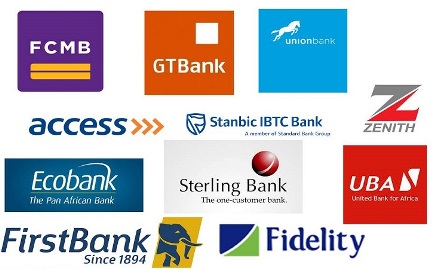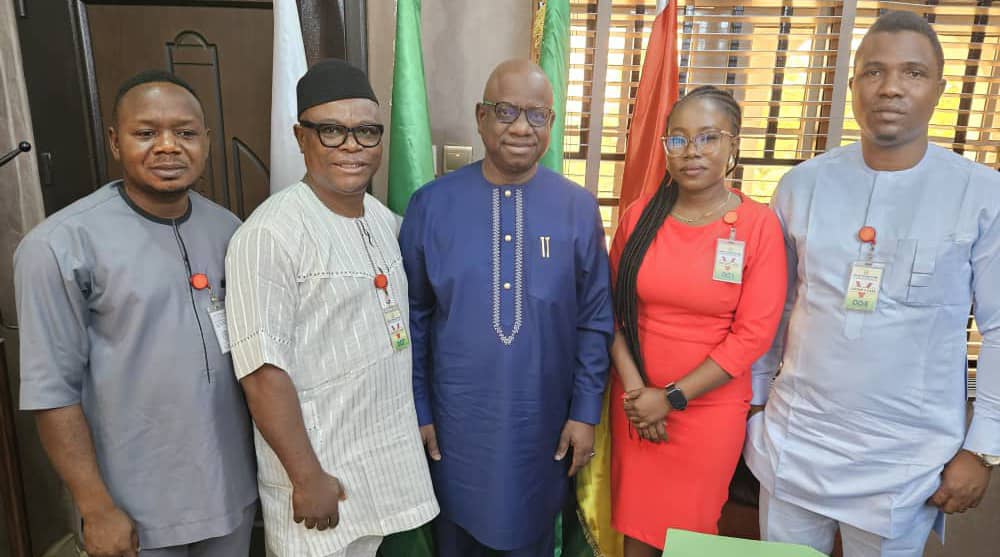News
Just in: Despite hunger, FIRS Orders all Banks To Start Taking N50 Compulsory Electronic Money Transfer

…levy On Every N10,000 Transfer
Despite hunger in Nigeria, the Federal Inland Revenue Service (FIRS) has directed all banks in Nigeria to enforce a mandatory N50 levy on electronic money transfers exceeding ₦10,000.
This directive aligns with the provisions of the Finance Act, which introduced the Electronic Money Transfer Levy (EMTL) as part of the government’s revenue generation efforts.
The EMTL is a fixed charge applied to qualifying transactions, and its implementation is expected to boost federal and state government revenues.
According to the FIRS, the levy is applicable to all forms of electronic transfers, including internet banking, mobile money platforms, and Point-of-Sale (POS) transactions.
The responsibility for collecting and remitting the levy lies with financial institutions, which must ensure compliance with the directive.
What Does This Mean for Bank Customers?
For every electronic transfer exceeding ₦10,000, bank customers will now pay an additional ₦50. For instance, if a customer transfers ₦20,000, a total of ₦20,050 will be debited from their account. This levy is separate from any service fees charged by banks for processing transactions.
Reactions from Stakeholders
The directive has sparked mixed reactions among Nigerians. While some view it as a minor inconvenience, others see it as an additional financial burden in a country already grappling with economic challenges. Critics argue that the levy could discourage cashless transactions, contradicting the Central Bank of Nigeria’s (CBN) drive for a cashless economy.
However, the FIRS maintains that the levy is essential for funding critical public services and infrastructure projects. “This levy is not new. It is part of the Finance Act, and the banks are simply implementing what has already been approved by law,” an FIRS spokesperson stated.
Implications for the Economy
The introduction of the EMTL is expected to generate significant revenue for the government. Under the Finance Act, revenue collected from the levy is shared between the federal and state governments, with 15% allocated to the federal government and 85% to the states.
Economists argue that while the levy could enhance government revenue, its success depends on proper management and transparency in fund utilization. There are also concerns about the potential impact on the informal sector, which relies heavily on electronic transfers for business transactions.
As the FIRS pushes for the implementation of the N50 levy on electronic money transfers, Nigerians are adjusting to the reality of an additional cost on their financial transactions. While the policy aims to increase government revenue, its long-term impact on the cashless economy and financial inclusion remains to be seen.
Bank customers are advised to stay informed about how the levy affects their transactions and to factor in the additional charge when making transfers.
News
Guinea Woos Nigerian Investors to Join $20bn Projects

News
Nigeria’s inflation jumps to 24.23% in March 2025

Nigeria’s headline inflation rate rose to 24.23% in March 2025, according to the official government data source, the Nigeria Bureau of Statistics (NBS).
The rise in the country’s inflation rate, from 23.18% back in February 2025 to 24.23% in March 2025, reflected a major increase in the rising commodity and energy costs in the last few weeks.
According to the March 2025 Consumer Price Index (CPI) Report which measures the inflation rate released by the government agency on Tuesday, the country’s food inflation rate was 21.79% year-on-year in March 2025.
The food inflation rate, however, showed a decrease compared to the food inflation rate of 23.51% recorded in February 2025.
Economists had predicted that the country’s inflation rate which decreased minimally in February would rise when the Dangote Refinery and the state-run NNPCL got entangled in a petrol price war that culminated in the temporary termination of a naira-for crude agreement between the two oil companies and the subsequent increase in the pump price of petrol.
Some observers had also said the minimal reduction in the prices of food commodities experienced earlier in February was not sustainable, attributing the temporary decline in the prices of food to the importation intervention of the Federal Government.
Food and commodity inflation have skyrocketed as Nigerians battle what can pass for the worst cost of living crisis since the country’s independence over six decades ago, a development that economic wizards have attributed to President Bola Tinubu’s twin policies of petrol subsidy removal and unification of the forex rates.
News
Plateau 51: Mutfwang mourns, says “we failed you”, begs affected community

Governor Caleb Mutfwang of Plateau State has apologised to the people of Bassa Local Government Area (LGA) for the failure of government and security agencies to protect lives and properties.
Fifty-one persons were gunned down early Monday in the Zikke community of the LGA, with houses razed and many displaced about two weeks after a similar attack led to the killing of scores of persons in Bokkos Local Government Area.
Less than two days after the most recent assault, Governor Mutfwang apologised for the government’s inability to protect the people.
Fifty-one persons were gunned down early Monday in the Zikke community of the LGA, with houses razed and many displaced about two weeks after a similar attack led to the killing of scores of persons in Bokkos Local Government Area.
Less than two days after the most recent assault, Governor Mutfwang apologised for the government’s inability to protect the people.
The governor said this on Tuesday at the palace of the Paramount Ruler in Miango.
“I will tell you the truth: I have been crying since yesterday because I had trusted God that all the arrangements were put in place, that this will not happen again. We have made investments in security,” he said.
But like all human arrangements, sometimes they fail. I want to admit that on Sunday night into Monday morning, we failed you. Please, forgive me.”
He urged the people not to relent in their efforts to secure their communities and ensure that they complement security agencies’ efforts by providing vital information for intelligence gathering and expose the antics of the criminals.
Governor Mutfwang, in the company of security chiefs and members of the state executive council, was in Zikke community to commiserate with the people on the death of over fifty persons killed in Monday’s attacks.
The Paramount Ruler of Irigwe land, Ronku Aka, who is the Brangwe of Irigwe, urged the government to come to the aid of the communities with the provision of social amenities in the area.
The governor and the entourage also went to see some of the families who lost their loved ones in the attack. The victims have been buried just as members of the community demanded action to stem the rising wave of insecurity in the state.
Plateau State has been a hotbed of attacks, but the renewed spate of attacks adds a fresh layer of twist to the decades-long crisis rocking the North-Central state.
After the most recent assaults, President Bola Tinubu ordered security agencies to fish out the masterminds, describing the attacks as condemnable.
While experts have linked the lingering Plateau crisis to farmers-herders tussle for resources, Governor Muftwang said it was sponsored and genocidal.
According to him, over 64 communities in the state have been taken over by gunmen.
-

 News15 hours ago
News15 hours agoTears, anguish as Plateau Community buries 51 killed by bandits
-

 News15 hours ago
News15 hours agoSHOCKING! One month after giving birth, woman discovers another baby in her womb
-

 News13 hours ago
News13 hours agoCBEX: 60 fraudulent Ponzi scheme operators to avoid in Nigeria
-

 News14 hours ago
News14 hours agoAngry investors raid CBEX office, loot assets in Ibadan after digital Platform crash
-

 News21 hours ago
News21 hours agoPeter Obi speaks as Benue govt. blocks humanitarian visit
-

 News21 hours ago
News21 hours agoFUOYE VC suspended over sexual harassment allegations
-

 Politics14 hours ago
Politics14 hours agoIgbo Youths Set To Mobilize 5 Million Man-March In Support Of Tinubu, Kalu
-

 News14 hours ago
News14 hours ago‘Not something I’d wish on anyone’ — Melinda Gates opens up on divorce


















